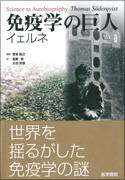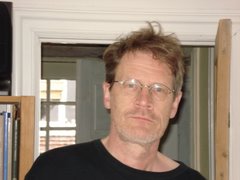1st European Auto/Biography Association meeting in Amsterdam 29-31 October
'Science as Autobiography' lost in translation -- 免疫学の巨人イェルネ
A couple of months ago I received a package which, to my great joy and surprise, contained five copies of my biography of Niels K. Jerne (Science as Autobiograhy, Yale UP, 2003) in a Japanese translation. 
The rights were sold to the big Tokyo publisher Igaku Shoin already in 2004. But I never heard anything from them, and occasional inquiries never yielded anything but polite avoidance replies. So it is very pleasing to see it in print at last.
My knowledge of Japanese is less than rudimentary so I churned the title (免疫学の巨人イェルネ) through Google Translate and got another---but less joyful---surprise: 'giants immunology jerne'! Could be a Google blunder, of course, but it doesn't even remotely looks like anything like 'autobiography'.
The Japanese title is a pretty far shot from (well, even the opposite of) the idea behind the original title. The thrust of the book is that Jerne's theoretical work in immunology was a metaphorical projection of his understanding of himself. His science was literally his autobiography. Accordingly Science as Autobiography is a case-study of an auto/biographical approach to understanding the construction of scientific knowledge. My claim is that the inner life of the scientist constitutes an emotional and existential context for the production of scientific knowledge which is as important as the cultural or social contexts.
Most reviewers got this message right (like Fred Tauber in Bull. Hist. Med.). But, alas, it gets completely lost in the translation. The new title erroneously classifies the biography into one of these hagiographical works that I very consciously tried to stay away from. Maybe some immunologists believe Jerne was a 'giant', but I certainly didn't portray him as such. It simply wasn't the intention of the book. The summary on their website (in Google translation) isn't better.
That said, it's great that the book is now available for a wider Japanese readership. To Igaku Shoin's credit, they have kept the whole note apparatus and the full bibliography, and all the illustrations are intact too. And it's very nicely set and bound, and (as far as I can see :-) there are no typos.
